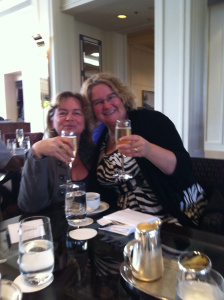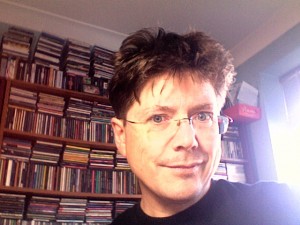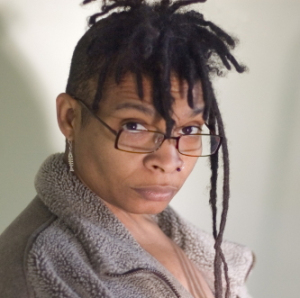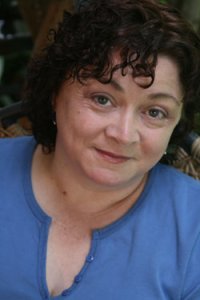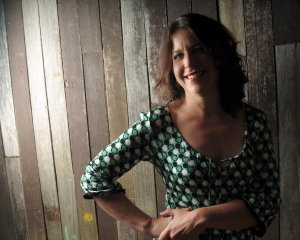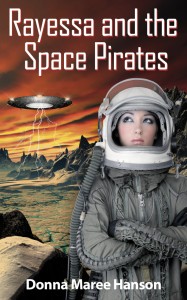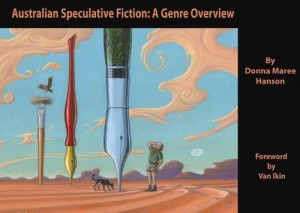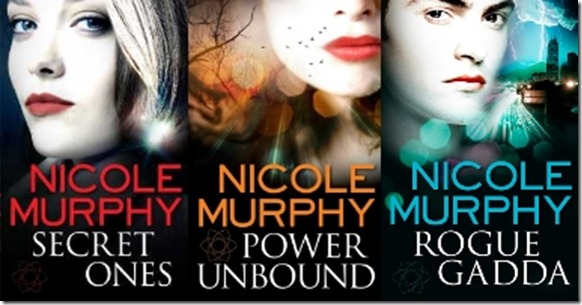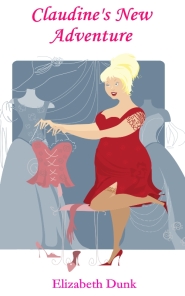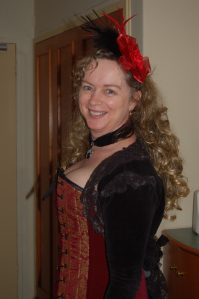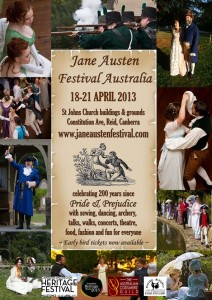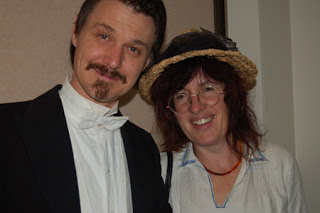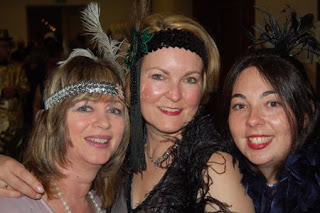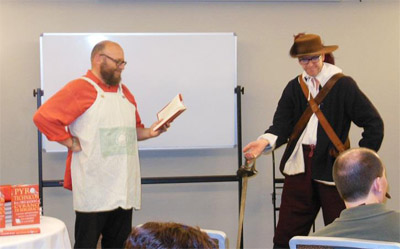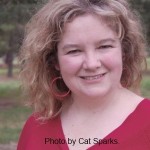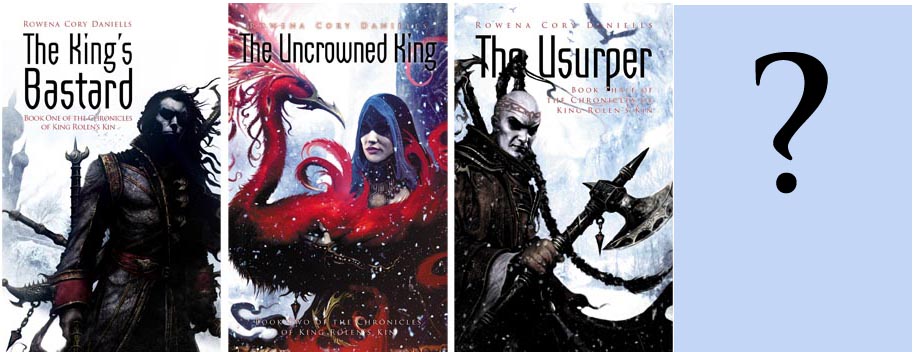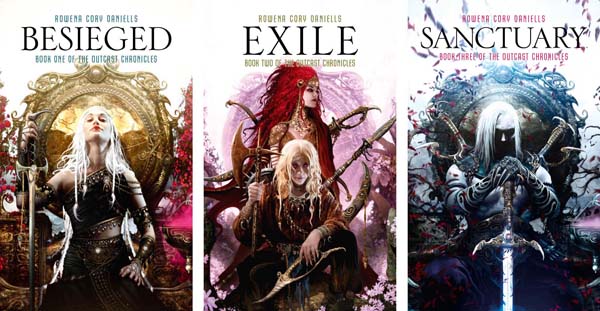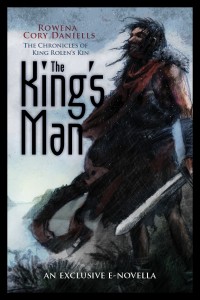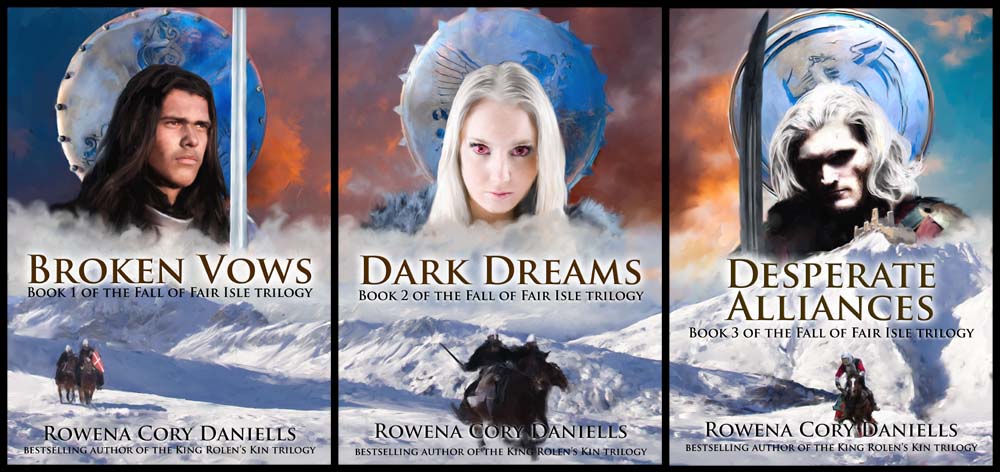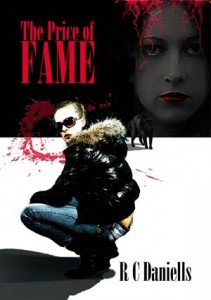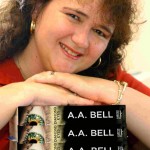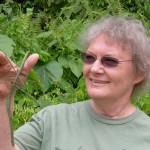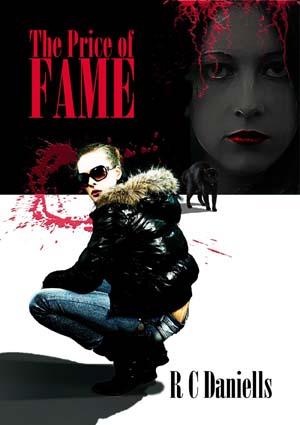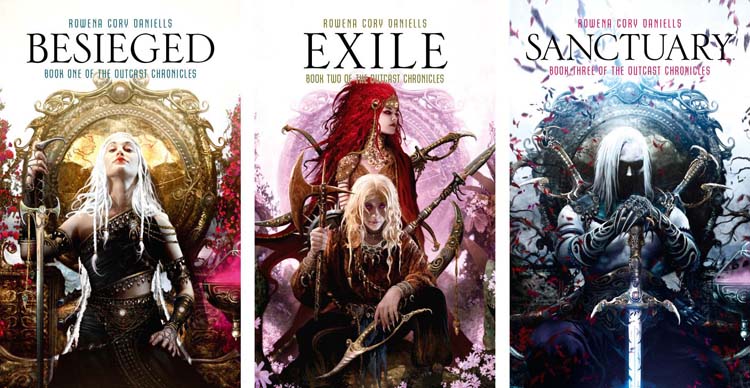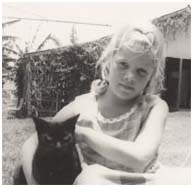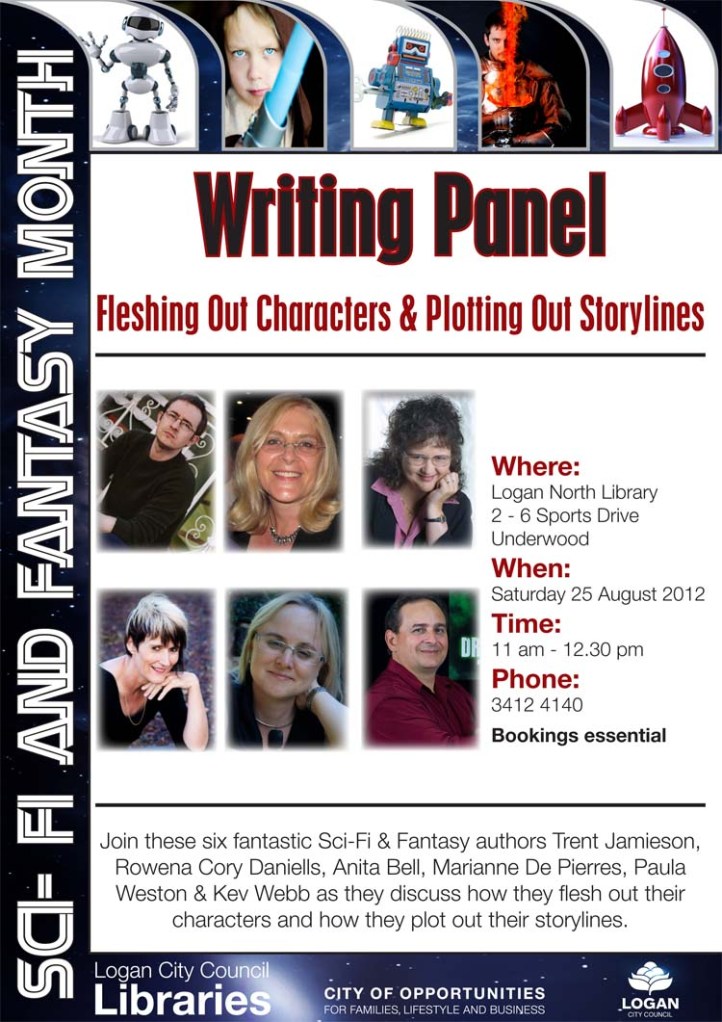I first met Dirk around 15 years ago when he turned up at a Vision Writers’ meeting bare foot talking about ley lines. I soon discovered he was a wonderfully insightful critiquer and came to value his input to our writing craft discussions. When Marianne and I formed the ROR writing group to polish our novel length work we asked Dirk to join. He lives in northern Tasmania with his GP wife and three children, and he is a genius when it comes to food!
His new book Path of Night has just been released through Fablecroft.
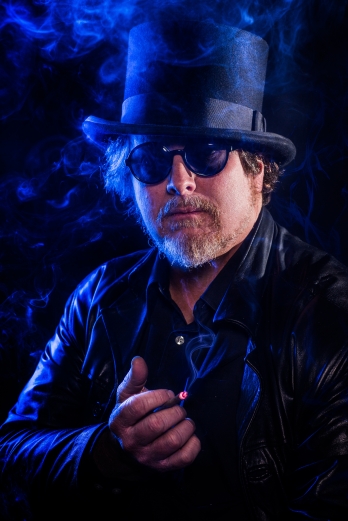
Q: First of all, why ‘Dirk Flinthart’? Your pseudonym reminds me of an episode of the Elizabethan Black Adder series when Lord Flashheart appeared. Were you a fan of Black Adder? What prompted you to use Dirk Flinthart as your writing name?
Long, complicated tale. It started – as many things have – at university. For the student newspaper, I wrote a column parodying the US ‘survivalist’ movement, with a friend. The putative writers were Dirk “Some Refuse To Die” Flinthart and Rambo Rockharde. We had a lot of fun, got paid, got drunk, and apparently developed a fanbase. A few years later, after John Birmingham’s He Died With A Felafel In His Hand made so much money that the publisher had to find a tax sink, I got invited to write gutter-level pulp crime fiction. (Brotherly Love, under Autopsy Press, later Duffy and Snellgrove.) All of us involved in that project used pseudonyms, and Birmo suggested I use Flinthart. Then of course that swine Birmingham actually caricatured me under the name of Dirk Flinthart in his sequel to Felafel (The Tasmanian Babes Fiasco). And I wrote a backpacker’s guide to the east coast of Oz in which I was quite rude to the city where my mother lived… so Flinthart took the blame there, too. And I’ve never quite shaken the bastard off.
I don’t mind, really. Flinthart has become more of an alternative identity. People who know me will know exactly what I mean, and people who know Flinthart… well, they know Mister Flinthart.
Oh! And yes, I’m a big Blackadder fan. Who isn’t?
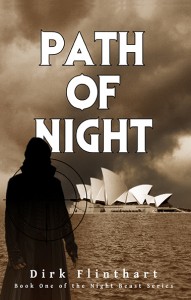 Q: According to the back cover blurb for Path of Night: ‘Medical student Michael Devlin is in trouble. With his flatmates murdered and an international cabal of legendary man-monsters on his trail, Devlin’s got nowhere to hide. His only allies are a hot-tempered Sydney cop and a mysterious monster-hunter who may be setting Devlin up for the kill. If he’s going to survive, Devlin will have to embrace his new powers and confront his hunters. But can he hold onto his humanity when he walks the Path of Night?’ I get the feeling this could be a mix of the Jim Butcher novels and Simon R Green’s Nightside series. What did you draw your inspiration from and do you envision a series for Michael Devlin?
Q: According to the back cover blurb for Path of Night: ‘Medical student Michael Devlin is in trouble. With his flatmates murdered and an international cabal of legendary man-monsters on his trail, Devlin’s got nowhere to hide. His only allies are a hot-tempered Sydney cop and a mysterious monster-hunter who may be setting Devlin up for the kill. If he’s going to survive, Devlin will have to embrace his new powers and confront his hunters. But can he hold onto his humanity when he walks the Path of Night?’ I get the feeling this could be a mix of the Jim Butcher novels and Simon R Green’s Nightside series. What did you draw your inspiration from and do you envision a series for Michael Devlin?
I can’t say where the exact ‘inspiration’ came from, but I can say this is intended as a series. Look, currently I’m most of the way through a Masters’ degree in creative writing, and I’ve been studying genre fiction. (Why not?) In doing the reading, I realised something very important.
All of us here in speculative fiction – we want an audience. We want to be published. And as writers, we are conditioned to think that the only effective tool we have is our prose, so we struggle and we strive and we polish and we edit and we critique… and then Dan Brown publishes something that is truly painful to read, and draws millions of readers. (Sorry, Dan. Your writing is awful, and your storytelling makes me cringe. But you’re entertaining a lot of people, so best of luck to you.)
The quality of our prose is important, but only to a certain degree. More important is having work out there, and entertaining an audience. Big publishers are constantly looking for the book that repeats yesterday’s bestseller. Writers want to be original. But audiences? They want to enjoy their reading, and there’s a lot of scope in that.
That was the real inspiration for Path of Night, right there. Realising that I’d reached a place where I could construct a novel and that it could be enjoyed by readers, I felt that I didn’t want to struggle and strive and have the MS looked at for the next two years by big publishers who wouldn’t take it in the end because it didn’t look like a commercial prospect. I thought I’d write a book that was fun, and interesting, and a bit different, and that I’d approach a small, agile publisher and jump straight into the e-book realms.
Hey: we all started writing because it was fun, right? We tell stories because we enjoy it. But the more we have to compromise our ideas and chase after the here-today, gone-tomorrow will-o-wisp vision of the big publishers, the less storytelling and the less FUN we have.
You want to know something cool? Writing Path of Night was a hoot. I like the main character. I like the main support character so much that I didn’t wind up killing her, and she’s going to be at least as important in the next book, or two, or three. I got a kick out of the villains. I enjoyed adding a distinctly Australian humour to it. I enjoyed the plot and the ideas, and once the ball got rolling, I had the first draft done in less than six months and it didn’t feel like work at all.
Now it’s out there, and the folks who have read it are getting back to me and saying: hey, yeah! This thing is fun! It’s interesting and entertaining!
That right there – that is the alpha and the omega of why and how I became a writer.
No, I haven’t written off the big publishers. That would be silly. But rather than chase them with ever more elegant works, I’m simply going to spend some time enjoying my writing. The challenge of writing elegant, arresting prose remains, and I’ll keep working on projects of that nature, but after the sheer pleasure I got from creating Path of Night, there’s no way I’m making the elegant, poetic stuff my only approach.
Q: In a blog post on Ebon Shores you say: ‘I’ve been writing stories since I was a kid. I figure most writers would say the same thing. I started getting paid in University, writing articles for this and that. Being paid was cool, but the point was much more about having fun. I convinced magazines to let me go to Maleny-Woodford to interview feral babes. I got myself paid to attend the National Festival of Beer. I got paid to ride around in a 4WD-converted Rolls Royce. I made money, but more: I had a lot of fun.’ Sounds like your early twenties were a hoot but it is a long way from this kind of writing to speculative fiction. Where and when did the fantasy and SF element come in?
First and foremost, of course. What do you think I read when I was growing up? Smart, isolated kid with a funny accent in Far North Queensland – yeah, I read science fiction and fantasy. I got hold of the Ancient Greek and Norse myths when I was about six. I got the Myths And Legends of King Arthur and the Knights of the Round Table, and a huge volume of Robin Hood in faux-Elizabethan English when I was about eight. I stumbled onto the Robert Howard Conan books before I was ten, and vaulted from there to Moorcock in all his hallucinogenic glory. After that? I read anything I could find that had a speculative element. Horror. Fantasy. Lots and lots of SF, gleaned from school fetes and library sales and everywhere, anywhere at all. I read the Gormenghast books and The Master and Margharita when I was thirteen, at the same time (and from the same private library) as I found Tove Jansson’s marvellous Moomintroll stories.
Yes. I’ve written for magazines. And newspapers. I’ve written radio scripts and interviews and plays, and adapted stories for short films. I’ve published at least one peer-reviewed paper on the topic of online education in an international education journal, and I did that as Dirk Flinthart which I think is pretty funny. I’ve written a backpacker’s guide, and stuff on lifestyle and humour, and I expect I’ll write a lot more of all sorts of things before I drop dead…
…but I love telling stories. Imaginative, speculative stories. And that’s what I’m doing with Path of Night.
Q: Your Red Priest stories have been very successful with The Red Priest’s Homecoming appearing in The Year’s Best Australian Science Fiction and Fantasy Volume 2. I know at one point you were working on a Red Priest book. Can we look forward to seeing a novel length story about the Red Priest?
Yep. Actually, I’d intended to break out with a Red Priest novel, but about halfway in I realised I was writing about more or less the end of the character’s career, and that seemed a damn’ fool way to introduce him in a big way. So I put that one on the back burner. My goal is to work through a few more quick, enjoyable books about Mick Devlin and the Night Beasts, and hopefully acquire enough of an audience that I can then turn around and introduce the Red Priest properly.
That’s the plan, anyhow. Who knows how it will go? I also have to finish that Queen of Bedlam novel pretty soon… and the Masters Degree with it. And more short stories. And… well, hell. Is there a writer that isn’t busy?
I love the Red Priest, though. I’m definitely not done with Tomaso Dellaforte. (Currently working on a story placing him in Iceland, as a matter of interest.)
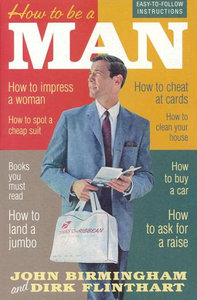 Q: Going way back you co-wrote How to be a Man with John Birmingham and I see you had a book called Brotherly Love published in 1995. What genre was this and why can’t I find an image of the cover? Is it out of print?
Q: Going way back you co-wrote How to be a Man with John Birmingham and I see you had a book called Brotherly Love published in 1995. What genre was this and why can’t I find an image of the cover? Is it out of print?
Brotherly Love is indeed out of print. As I mentioned before, Birmingham’s “Felafel” opus kind of scared the publisher, and he needed a new project to balance his books. Michael Duffy was a man ahead of his time. He figured there was a market for novella-length crime done quick and dirty… and of course, today he’s right. The novella is emerging as a real sweet-spot length for e-publishing. But back in ’95, the cost of printing a 30,000 word book was significant, and you couldn’t really deliver a throwaway price on the things. Meanwhile, the trend was towards doorstop sized airport novels, so after a half-dozen or so books in the collection (Birmo wrote another. So did Peter Robb. I can’t recall who else was involved.) they shelved the concept.
I really enjoyed writing it, though. Thirty thousand words in two weeks, followed by a revision. I can’t believe I made it work. We all did it, though. And yeah: it was fun. A lot of fun.
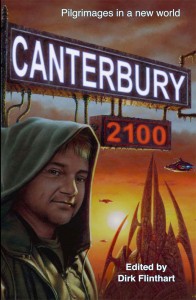 Q: A few years ago you compiled and edited a shared world anthology called Canterbury Tales 2100. In an interview on the ROR site you say: ‘Canterbury was a major challenge. It was an homage to the Canterbury Tales: a collection of oral stories by travellers on a stranded train in the year 2109, on their way to Canterbury in an England trying to recover from a century of climate change, ecodisaster, economic catastrophe, plague – a collapse of the worldwide civilisation we have today.’ This sounds fascinating. Do you have any plans to do another shared world anthology?
Q: A few years ago you compiled and edited a shared world anthology called Canterbury Tales 2100. In an interview on the ROR site you say: ‘Canterbury was a major challenge. It was an homage to the Canterbury Tales: a collection of oral stories by travellers on a stranded train in the year 2109, on their way to Canterbury in an England trying to recover from a century of climate change, ecodisaster, economic catastrophe, plague – a collapse of the worldwide civilisation we have today.’ This sounds fascinating. Do you have any plans to do another shared world anthology?
I adored the Canterbury idea, and I loved working on this project. I picked up very early pieces from writers including Lisa Hannett, Laura Goodin and Thoraiya Dyer, all of whom have gone from strength to strength. Cat Sparks backed me to put it together to suit myself and I remain inexpressibly grateful to her for that.
This is a book that should have gone through a big publishing firm. The idea was not so much a shared world anthology as a collection of stories from the people of a shared fictional world. As a reader, you don’t get a straightforward depiction of “the future” from this book. You get the stories that the people of that future tell each other, and you have to piece together your own image of the future that created those stories. To me, that’s the essence of good storytelling: giving readers enough that they want to create more for themselves.
Canterbury 2100 is unique. Nobody’s done anything quite like it before, or since, and come what may, the writers and I own a little piece of science fiction history for that. I am extremely proud of this collection, and it was indeed a real challenge. However, storytelling is my first love. Editing is second-best, no matter how much fun you’re having with it. If I do another shared world anthology, it will be because I’m being paid for it!
Q: Your Young Adult stories have been shortlisted several times for Aurealis awards and This is not my Story appeared in the Year’s Best Australian Science fiction and Fantasy Volume 5. Are you particularly drawn to YA stories and if so, why?
YA? No special appeal. But think how much speculative fiction has been more or less YA. Look at Frank Herbert’s Dune: Paul Atreides is 14 years old at the outset. And Ged, in Ursula LeGuin’s wonderful Wizard of Earthsea – a boy who becomes a very young adult over the course of the tale. Think how much YA stuff Robert Heinlein did – and Diana Wynne Jones, and oh, how many others?
There’s a reason for that, you know.
This world we’ve created does a terrible thing to children as they grow up. When you’re small, the world is full of ghosts and fairies, witches and magic, Jedi masters and superheroes and all manner of marvels and wonders. But as you get older, they take these things away from you one at a time. They kill off the Tooth Fairy, and Santa. The fairy tales become… just stories. The witches become sad, misinterpreted and persecuted women from difficult historical times. The speed of light keeps the alien invasion fleets away from Earth forever, and keeps every space-ranger and free-trader planetbound.
All this they take, and they give back nothing but wreckage. Consumerism. Climate change. Mass extinctions. Trade wars. Terrorism. It’s not an equitable exchange at all: it’s vicious, and it’s cruel.
But there’s that one last joyful period in the life of a growing, thinking person: that time when you’re old enough to comprehend and enjoy complex storytelling, yet not so beaten and defeated that all the magic has gone from the world. That, right there: that’s why so much YA fiction is also speculative fiction. The audience is still young enough and strong enough to suspend disbelief, but they’re also old enough and smart enough to handle a good, strong, twisty story with teeth.
What’s that quote from Ursula leGuin? Oh, I remember: “The creative adult is the child who has survived.” Well, that’s what good YA fiction is for – helping keep alive the child that so very much of this appalling world seems intent on killing. And speculative fiction of all sorts is for people who can suspend disbelief and play along, so of course it frequently reaches out to a younger audience.
And who knows? If we do a good enough job as writers, maybe we’ll convince some of that audience to devise truths of our myths, and the world can become a better place.
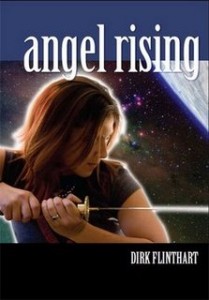 Q: Angel Rising was published by Twelfth Planet Press. You say: ‘Gordon gets to fall in love, fight lots of bad guys, discuss Zen and ethics, and maybe save his world. Oh – and he also gets to take sides in a pitched battle between ninjas and Zen Buddhist nuns. What else could you ask for?’ Sounds like fun. Proctor General Gordon has appeared in several stories tied into the New Ceres shared world. Will you be revisiting New Ceres and Gordon?
Q: Angel Rising was published by Twelfth Planet Press. You say: ‘Gordon gets to fall in love, fight lots of bad guys, discuss Zen and ethics, and maybe save his world. Oh – and he also gets to take sides in a pitched battle between ninjas and Zen Buddhist nuns. What else could you ask for?’ Sounds like fun. Proctor General Gordon has appeared in several stories tied into the New Ceres shared world. Will you be revisiting New Ceres and Gordon?
I’d quite like to, but… it’s complicated. I’m not really sure where all the rights are, or how it all works. There were a lot of people involved with New Ceres. Still, I’ve got several thousand words in which a typically sardonic and cunning George Gordon more or less single-handedly attacks an invasion fleet… It might see the light of day at some point!
Q: Not long ago you were writing a libretto as part of your Masters. It was turned into an operetta called Bedlam where Mab, the Queen of the Fey, and Lord Byron collided. ‘Bedlam is a legendary place of madness, and of course, there’s a long history of association between madness and the Faery folk. To be ‘elf-shot’, for example, is an old term for being mad. And then there’s the term ‘fey’, which is often used interchangeably with faery or fairy or elf – but also means eccentric, mad, ‘doomed’, ‘fated’, and so forth. I want to say it was an easy leap from there to trap an elf-queen in Bedlam, and to put the famous Lord Byron into the role of rescuer. And why not? Club-footed Byron (obviously marked by the faery at birth!) is as fine a role-model for the elf-shot, mad, romantic hero as ever you could want.’
(See a clip here)
This takes collaboration to a whole new height, working with a songwriter, director, dancers and actors. Is it an experience you would revisit?
As it stands, the piece is designed to be an opera. The company in Brisbane – Outcast Opera – are still intent on bringing it to life, but they have to grind their way through the funding process. I really, really hope they manage it: the trailer they put together for presentation to Queensland Arts was absolutely jaw-dropping, as you can see from that clip.
Now, my part in all that visual and auditory glory was small. I just wrote some words! But oh – to see and hear those words as they come back with all that music, those voices, those phenomenal dancers! How much more could a writer ever ask for?
I’ve done this kind of thing a couple of times. There’s a short movie from Dragonwood Studios based on a story of mine, and then there’s this opera. And I honestly cannot convey just how much I have enjoyed this. Writing and storytelling – that’s one process, one dimension, one interpretation of ideas and characters. As soon as you bring in other creative people to add imagery, movement, light and colour and sound… yes, you give away ownership of the words. But you get so much back! Seeing your own dreams come back at you, reshaped and re-coloured by the imagination and creativity of others – that’s a special kind of magic.
I’d do this again in a heartbeat. Any time at all. You know what would be a real dream? Writing for animation. That would be just too damned cool.
Still. I’ll be happy if the opera gets to the stage. I’ve promised I’ll attend the premiere in a proper tuxedo… although I think I’ll have to Steampunk it up in honour of the story itself.
Q: Your writing background is very eclectic. Was this a deliberate choice or did the stories drive you in their own directions?
There wasn’t a choice. I’m afraid that’s just me. I have an odd kind of mind. I have an unusually retentive memory (far from photographic; I just keep oddments and facts and trivia) and an odd propensity for forming connections and patterns. I have no idea how other people create stories, and even less on how they can keep creating in a single niche. Stories are everywhere! Just… join the dots, right?
I’m not explaining this very well, am I? Probably because I cannot. I think most of us are blind to the strange wellsprings of our own creativity, and I think that’s probably a necessary thing. If we understood where it all came from, it seems likely it would vanish.
Q: I understand you teach Ju Jitsu, are learning Iaido, and have been known to take your bow out and shoot a wallaby to cook for dinner, as well as write. How did your degree in Entomology prepare you for this? Seriously, what advice would you give aspiring writers?
Okay, this is getting silly. Ummm… yes, to all the above. (Except bow-hunting wallabies. That’s illegal. But I own a duly licensed firearm, and occasionally I use it to reduce the plague-proportion numbers of wallabies here, and yes – they’re delicious. But I only ever shoot targets with the bow.) I also take photographs, and play the Irish whistle and flute. Doesn’t everyone?
Advice for aspiring writers is simple, though: write.
Don’t expect to publish. Just write. Write because you need to, because it’s your joy, because it gets you through the day. Write what you like writing, and enjoy the writing that you do.
Yes, your prose has to work. But there are enough highly popular, thoroughly execrable books out there to prove beyond all doubt that deathless prose isn’t the secret.
What is? Well, if I knew that I’d be parked next to Dan Brown’s yacht, wouldn’t I? But I know this: if you’re not having fun, you’re wasting your life. So write, and take pleasure in the stories you tell, and once you’ve placed a few stories and maybe won a competition or two, just take the plunge.
Let the readers decide. They’re the ones you want to reach, after all.
Catch up with Dirk:
Blog
Goodreads







